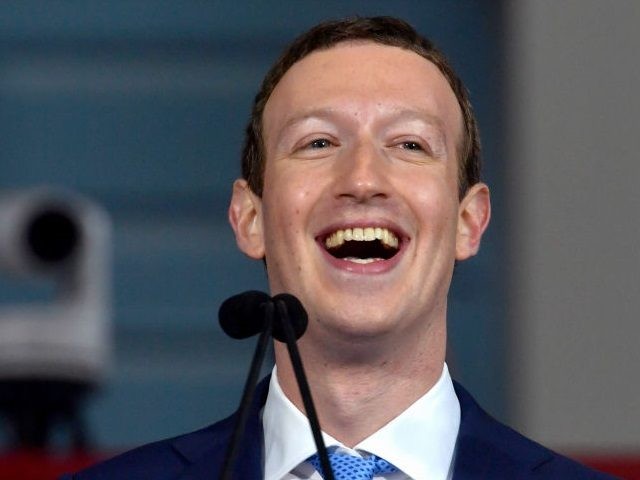In his recent interview with the far-left online publication Vox, Mark Zuckerberg explained Facebook’s new system of favoring “broadly trusted” news sources, via a mechanism designed to favor established outlets and crush new media.
Facebook introduced its new system in January, and the results were immediately apparent. Facebook traffic to establishment outlets including CNN and NBC soared upwards, while traffic to conservative outlets fell. Facebook engagement (likes, shares, and comments) also fell across multiple new media outlets, including those on the right and the left. Facebook engagement on President Trump’s posts fell by 45 per cent.
In his Vox interview, Mark Zuckerberg explained these changes as neutrally as he could, talking about providing a more “meaningful experience” for Facebook users. But despite tamely couching his words, the truth slipped out — Facebook is going to act like a publisher, with a view on what counts as “quality news,” and make judgments about the accuracy and reliability of news publications.
Zuckerberg outlined three categories of “fake news” — spammers, state actors, and “real media outlets who are saying what they think is true but have varying levels of accuracy or trustworthiness.”
Zuckerberg then explained Facebook’s methodology for determining a “trusted” news source. As Breitbart News previously reported, the method is designed to favor establishment media.
“This year, we’ve rolled out a number of changes to News Feed that try to boost in the ranking broadly trusted news sources” said Zuckerberg. “We’ve surveyed people across the whole community and asked them whether they trust different news sources.”
“Take the Wall Street Journal or New York Times. Even if not everyone reads them, the people who don’t read them typically still think they’re good, trustworthy journalism. Whereas if you get down to blogs that may be on more of the fringe, they’ll have their strong supporters, but people who don’t necessarily read them often don’t trust them as much.”
Zuckerberg then explained how his company will try to help out the establishment media by helping them attract paying subscribers.
“So I do think a big responsibility that we have is to help support high-quality journalism. And that’s not just the big traditional institutions, but a big part of what I actually think about when I’m thinking about high-quality journalism is local news. And I think that there are almost two different strategies in terms of how you address that.”
“For the larger institutions, and maybe even some of the smaller ones as well, subscriptions are really a key point on this. I think a lot of these business models are moving toward a higher percentage of subscriptions, where the people who are getting the most value from you are contributing a disproportionate amount to the revenue. And there are certainly a lot of things that we can do on Facebook to help people, to help these news organizations, drive subscriptions. And that’s certainly been a lot of the work that we’ve done and we’ll continue doing.”
By making editorial judgments about what counts as “quality” news, Facebook has shifted from a neutral platform to a publisher with an editorial opinion. As Sen. Ted Cruz explained to representatives of the tech giants in January, this undermines the case for continued legal immunity under Section 230 of the Communications Decency Act, which exempts online platforms from legal liability for content posted by their users.
Allum Bokhari is the senior technology correspondent at Breitbart News. You can follow him on Twitter, Gab.ai and add him on Facebook. Email tips and suggestions to allumbokhari@protonmail.com.

COMMENTS
Please let us know if you're having issues with commenting.